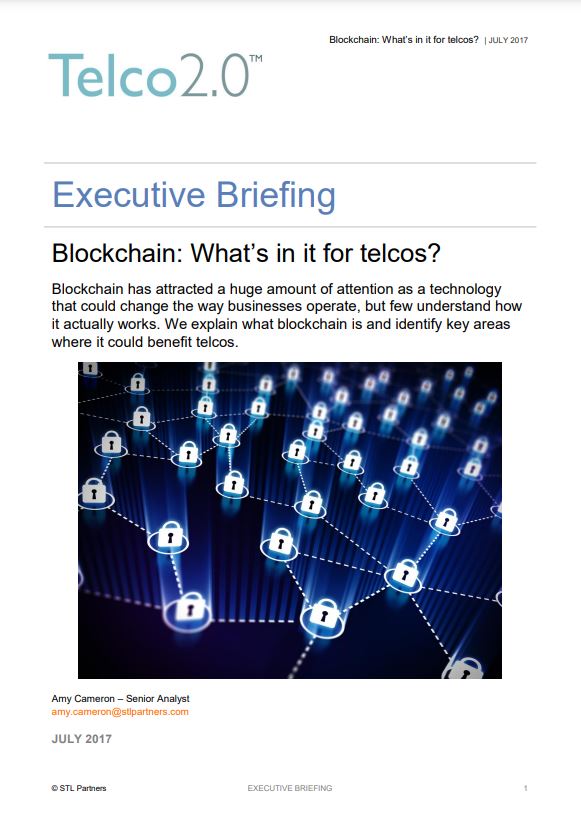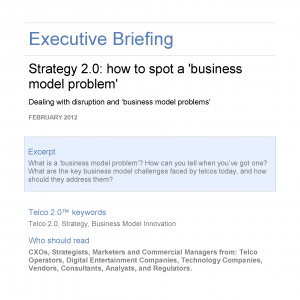Blockchain: What’s in it for telcos?
£1,000.00 excl VAT
Blockchain has attracted a lot of hype, but what is it actually useful for? In this report and follow-up webinar, we discuss blockchain’s strengths and weaknesses as a tool to solve business problems. The report identifies seven high potential use-cases where telcos could use blockchain to cut costs and support new services, and outlines which are most likely to be implemented first and why.
Note: that the Excel dataset is not included with this product. To purchase access to this dataset get in touch at contact@stlpartners.com
Description
Format: PDF filePages: 40 pagesCharts: 16Author: Amy CameronPublication Date: July 2017
Table of Contents
- Executive Summary
- What is blockchain?
- Why is blockchain important for telcos?
- What are the pros and cons of blockchain?
- What should telcos do about blockchain?
- Introduction: What is blockchain?
- Bitcoin beginnings
- Moving beyond Bitcoin and cryptocurrencies
- Blockchain is experiencing some growing pains…
- …But the benefits outweigh the risks
- Telco investments in blockchain
- The why and how of blockchain
- Understanding when blockchain is the appropriate technology
- How will blockchain ecosystems develop?
- How can blockchain help telcos?
- Financial transactions between opcos
- Identity management
- Roaming and settlement
- IoT
- Conclusion
- Recommendations for telcos
- STL Partners and Telco 2.0: Change the Game
Table of Figures
- Figure 1: How the Bitcoin blockchain works
- Figure 2: How smart contracts work
- Figure 3: Public vs permissioned blockchains
- Figure 4: Blockchain’s strengths and weaknesses
- Figure 5: Comparing blockchain with TCP/IP evolution
- Figure 6: Blockchain applications for telcos
- Figure 7: Blockchain technology for settling commercial transactions between opcos
- Figure 8: How blockchain enabled cross-border mobile money transaction settlement works
- Figure 9: Blockchain for identity management
- Figure 10: Using blockchain to validate ID attributes
- Figure 11: Blockchain for managing roaming agreements and settlement
- Figure 12: How blockchain-enabled subscriber authentication works
- Figure 13: Managing WiFi roaming with blockchain
- Figure 14: Blockchain applications in the IoT
- Figure 15: Tracking IoT devices from inception to ensure data integrity
- Figure 16: IBM predicts a shift to distributed IoT networks
Technologies and industry terms referenced include: Bitcoin, blockchain, distributed ledger technology, Ethereum, identity, IoT, P2P transactions, security, smart contracts

